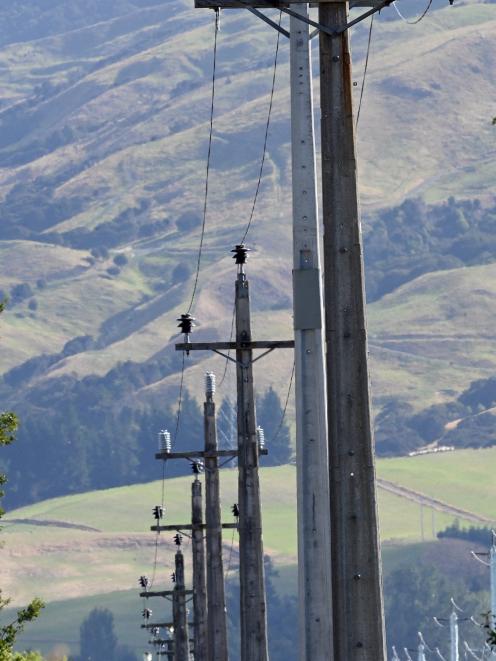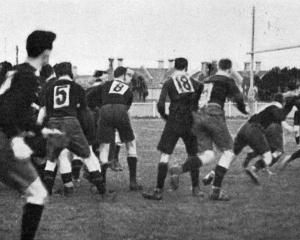
The council’s escalating group debt situation takes it close to a Local Government Funding Agency (LGFA) cap for interest, which cannot exceed 30% of rating revenue.
"If Aurora is not sold, then the 30% is likely to be pressed in the early 2030s," a report for councillors said.
"If Aurora is sold, then this would significantly reduce the ratio of interest expense to rates revenue."
This was illustrated by a graph, which was redacted in the version of the report made available to the public.
Significant financial information — especially any that signalled a possible asking price for the electricity distribution company — was redacted, although it was evident Dunedin City Holdings Ltd (DCHL) expected the company could sell for more than $1billion.
The council decided last month to present to the public a possible sale of the company. A period of consultation finishes at noon on Thursday.
About 540 submissions had come in as of last Friday and a hearing is to be held on May 14-16.
If councillors then decide they want to press ahead, a minimum price would be set and the company would go on the market.
The council-owned DCHL, whose stable of companies includes Aurora, said there was a compelling case to sell.
Key arguments for a sale have included lack of dividends from the company in recent years, and likely for the next few years at least, while reinvestment in the network is prioritised.
The lack of returns has been compared unfavourably with the yield likely from a diversified fund formed out of sale proceeds.
It is expected — once Aurora’s debt of about $576 million has been cleared at the time of sale — the council would have hundreds of millions of dollars left over for the base of the fund.
The council report suggested a long-run total return of 8% a year and a distribution policy of 5% a year. The residual 3% could be used to protect the capital base.
Arguments against a sale include the near-certainty the capital value of Aurora will increase and the company would, at some point, be profitable enough to provide consistent dividends.
The council also had some ability to influence the company’s direction and it would give this up under any sale.
DCHL’s advice was now was a good time to sell to realise a price premium.
Both the council and Aurora had also been described in council material as "capital intensive and facing increasing borrowing".
Discussion of LGFA covenants — particularly the 30% cap — previously arose at the council in May last year.
Council chief financial officer at the time Gavin Logie said the council and its group of companies were headed for compliance in 2023-24, but it would be "very close".
This led to then Dunedin City Treasury Ltd chairman Keith Cooper saying the council and its group of companies needed to manage their affairs in a manner that did not breach covenants with the agency.
The treasury was comfortable no breaches of covenants were imminent, he said.
LGFA chief executive Mark Butcher said in June last year Dunedin’s situation was unusual because the way the council and council companies borrowed money meant they were treated as one group.
If a breach was forecast, the agency would have to ask its shareholders to permit it, he said.
There were also suggestions last year it should not be too much trouble for the council to secure an exemption, if this ended up being needed.
Other highlights in the council report from March this year included DCHL pointing out lower group debt — following a sale of Aurora — would reduce risk to the council’s credit ratings.
The council also disclosed its own capital spending programme could add up to $2b for 2024-34.












